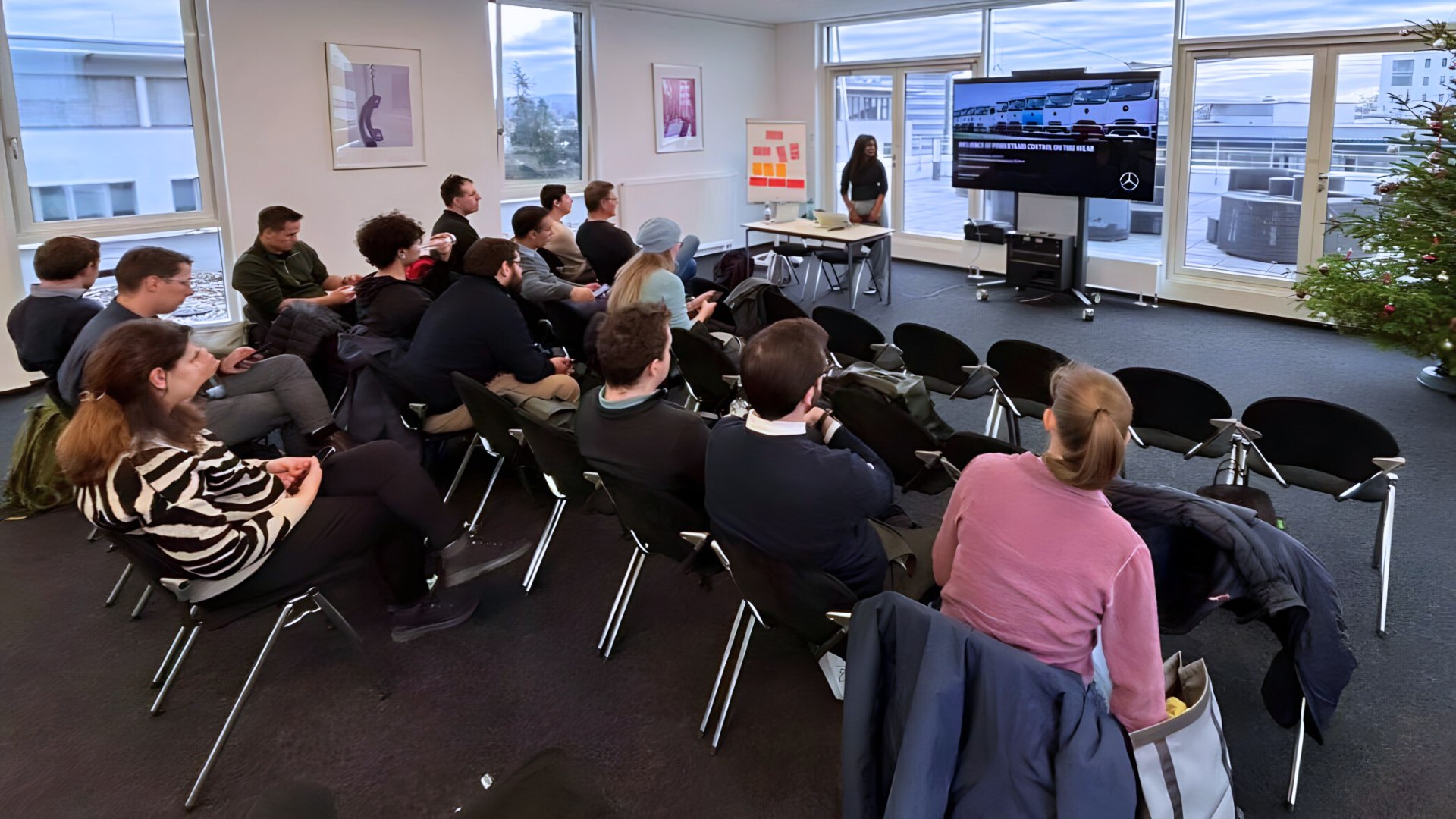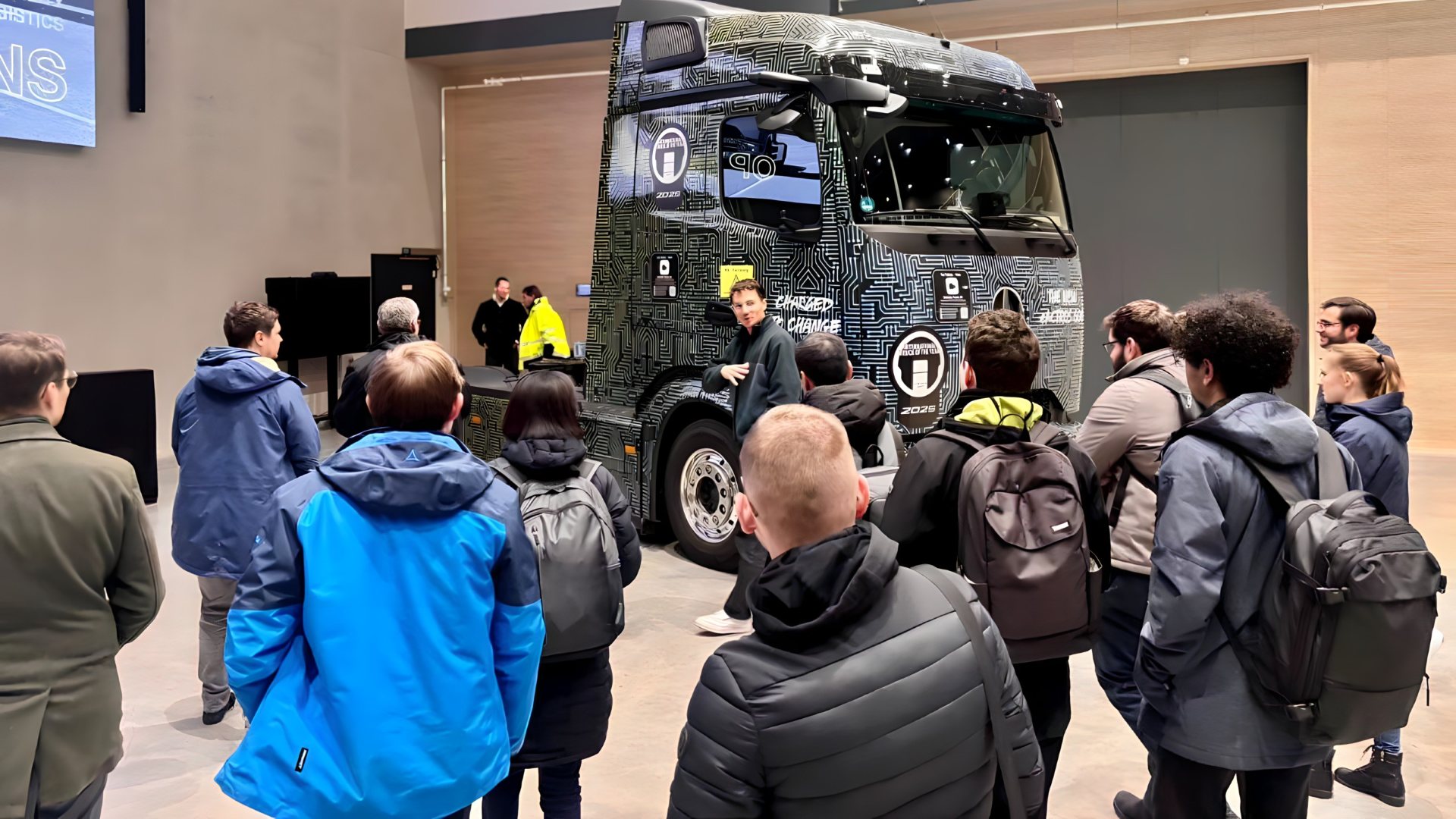A Forward-Looking Encounter – Autonomous Vehicles for Secondary School Students at Újpesti Csokonai Vitéz Mihály Primary School and Grammar School
How can cutting-edge engineering developments be brought closer to secondary school students? What can a university-level career orientation lecture offer young people who are approaching one of the most important decisions of their lives? These questions were addressed during a morning programme in which three lecturers from the Budapest University of Technology and Economics (BME) delivered a presentation on the development of autonomous vehicles at Újpesti Csokonai Grammar School.
Through the lectures of Dr Zsolt Szalay, Head of the Department of Automotive Technologies at BME, Dr Tamás Bécsi, Head of the Department of Control for Transportation and Vehicle Systems, and Dr Szilárd Aradi, Associate Professor at the same department, students gained insight into the technologies shaping the future of mobility.
An Invitation Built on Professional Connections
The visit was rooted in an earlier departmental event organised for teachers, during which a professional relationship was established with one of the school’s mathematics teachers. As a continuation of this collaboration, the department was invited to the grammar school, where nearly 70 students from eight secondary school classes attended the morning session—entirely on a voluntary basis and driven by genuine interest.
“Career guidance is a particularly important responsibility for us,” said Gabriella Katalin Tatár, Deputy Head of the Secondary Education Division at Újpesti Csokonai Vitéz Mihály Primary School and Grammar School. As she explained, the institution regularly hosts university presentations throughout the academic year. “We have welcomed representatives from Eötvös Loránd University, Károli Gáspár University of the Reformed Church, the University of Pannonia, as well as institutions from Győr and Gödöllő. Our aim is always to provide students with as broad a picture as possible of their higher education opportunities.”
More Opportunities, More Complex Decisions
Today, choosing a career path is a far more complex task than it was even a decade ago. “The sheer range of available opportunities is what makes the decision truly difficult,” emphasised the deputy head. Changes in the higher education admissions system and institution-specific bonus point schemes present significant challenges not only for students, but also for educators.
“Staying informed has become more time-consuming for everyone. That is precisely why I believe it is important for as many of these presentations as possible to reach schools,” she added. Speaking about her own practice, she noted that she regularly attends career orientation events and the Educatio exhibition in order to support both students and colleagues with up-to-date information.
“I Was Truly Impressed”
According to Gabriella Katalin Tatár, the lecture offered not only new information, but a genuine vision of the future. “If I say I was impressed, I may even be understating the experience. Seeing where autonomous vehicle development stands today, and realising that Hungarian researchers are achieving results at a world-class level, fills me with pride.”
While she had previously been aware of autonomous vehicles, she encountered the topic in such depth for the first time. “I am convinced that among the students there will be some for whom this lecture will have a decisive influence on their future studies.”
A Teacher’s Perspective: Genuine Engagement
A key role in organising the programme was played by Anikó Sauer, a mathematics teacher at the school, who had previously attended a departmental event for educators. “I had already seen this presentation earlier and found it excellent then as well. This is the future, and it is important for students to become familiar with it,” she said.
Based on her observations, participants mainly came from language-focused tracks and students with a technical interest. She found it particularly encouraging that ninth-grade students actively approached the lecturers with questions after the presentation. “Some of them stayed behind to ask very specific questions. That is always a good sign.”
From a Student’s Point of View: Knowledge and Inspiration
One of the participating students, Bálint Balogh, a Year 11 student, summarised his experience as follows: “We received exactly what we expected—clear and detailed information about autonomous vehicles, how they work, and what we can expect from them in the future.” He found it especially interesting to learn that so-called Level 5 autonomous vehicles are already capable of operating without a safety driver.
Although his own career plans are oriented towards the healthcare sector, he still found the lecture inspiring. “I would not choose this field for further studies, but it was very interesting. It will remain more of a hobby-level interest—but that is important too.”
More Than Just a Lecture
By the end of the morning, it had become clear that such events go beyond the mere transfer of information. They convey enthusiasm, credible role models, and a tangible vision of the future. As Gabriella Katalin Tatár concluded: “In addition to the lecturers’ professional expertise, it is their enthusiasm that truly adds value. That is what resonates with students.”
For the Department of Automotive Technologies, these encounters serve as confirmation that presenting state-of-the-art research fields can successfully engage young people even at secondary school level—whether as future engineers or as open-minded thinkers with an interest in technology.
















